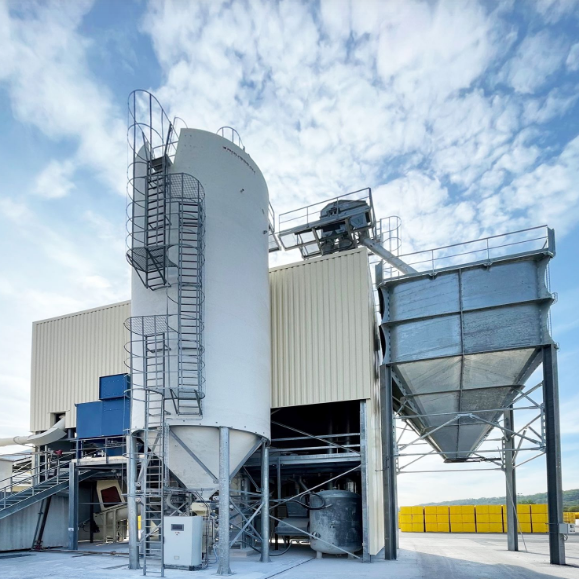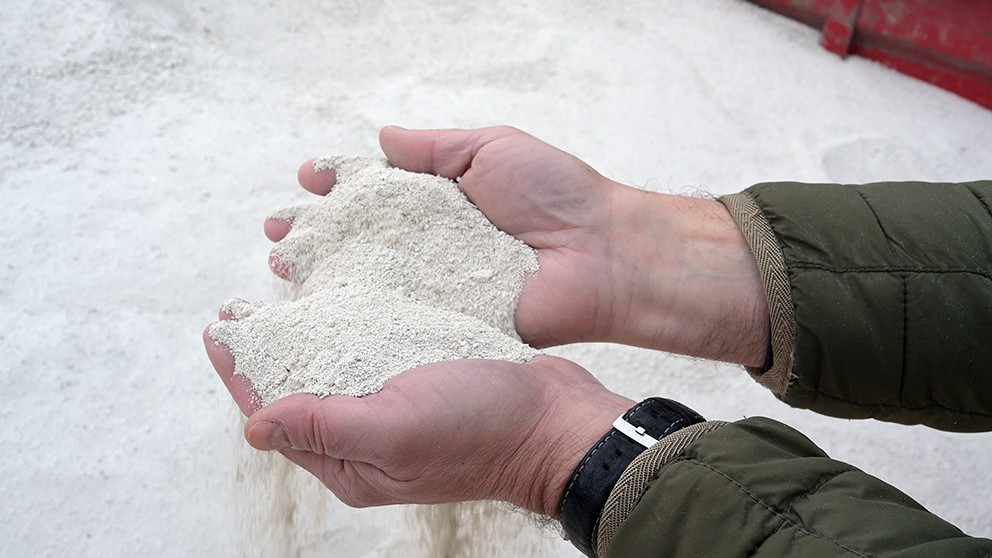Construction and demolition waste accounts for more than one-third of all waste generated in Europe, and most of the components of construction and demolition leftovers have value. Reducing, reusing and recycling waste and by-products from production processes is therefore a major challenge for our industry.
At Xella, we have taken the first steps to develop the circularity of our materials. We have a great opportunity because our main products, autoclaved aerated concrete (AAC) and calcium-silicate units (CSU), are almost completely recyclable. Our first step towards a circular economy is to stop sending any AAC or CSU residues or production leftovers to landfill by 2030. This has made us rethink and refocus our efforts to create more innovative ways to find alternative uses for these materials and to test new recipes for our products.
These are the pillars on which the circularity of our materials is developed:
-
Reducing raw material consumption
Our St. Savin plant in France successfully pioneered the use of crushed AAC leftovers to replace mineral resources in production. This reduced sand consumption by 10% and saved 159 tons of CO2e in 2023. We will extend this process to other plants in 2024.


